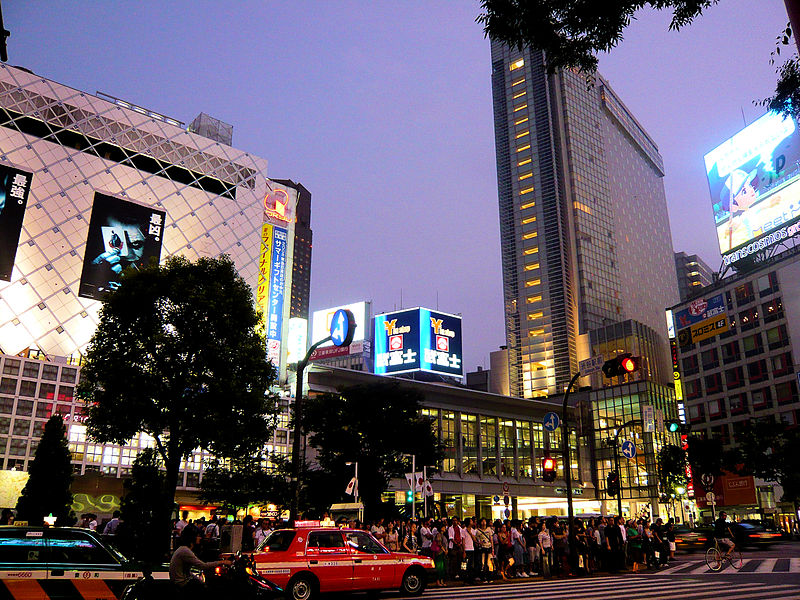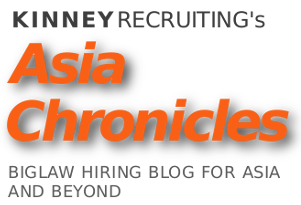We have recently been working with several firms in Tokyo on hiring needs which range from M&A/cap markets to project finance to litigation/dispute resolution. In the past 5 months, the following roles in Tokyo BigLaw have popped up:
- Junior to mid-level US associate candidates with capital markets experience. Ideal candidates will also have experience in other forms of corporate law (such as M&A and bank finance) in addition to capital markets. Must be at least business fluent in Japanese. There are MULTIPLE such openings.
- Mid-level US-qualified M&A candidates who are at least business fluent in Japanese.
- Mid-level to senior project finance associates, US qualified. Candidates with power experience as well as experience negotiating project agreements will be highly prized. Language skills are of secondary importance although business fluency in Japanese or Korean will be very helpful.
- Mid-level Dispute Resolution candidates, US qualified. Business fluency in Japanese required.
- Junior (2009-2010 PQE) and Mid Level (2005-2007 PQE) ENGLISH or AUSTRALIAN qualified Energy lawyers with experience in the Upstream Oil & Gas field. Ideal candidates will have project development and M&A experience. Japanese language skills not required.
HOUSING ALLOWANCES AND OTHER BENEFITS
 As many of you already know, the Yen is crazy strong against the USD at the moment (although that could be more a function of the USD’s relative weakness than much anything else). The vast majority of Tokyo offer letters will come with an expat package. The standard expat packages that we have been seeing have been for 450,000 JPY/month, or approximately US$70,000/year at the current exchange rate of 1 JPY to 0.013 USD. Firms vary as to whether your salary will be paid in Yen into a Japanese bank account or paid in USD into a US bank account. This variation is typically driven by tax concerns on the part of the law firm and is not something an associate can typically negotiate.
As many of you already know, the Yen is crazy strong against the USD at the moment (although that could be more a function of the USD’s relative weakness than much anything else). The vast majority of Tokyo offer letters will come with an expat package. The standard expat packages that we have been seeing have been for 450,000 JPY/month, or approximately US$70,000/year at the current exchange rate of 1 JPY to 0.013 USD. Firms vary as to whether your salary will be paid in Yen into a Japanese bank account or paid in USD into a US bank account. This variation is typically driven by tax concerns on the part of the law firm and is not something an associate can typically negotiate.
We have been seeing a lot of firms offer to be the main signatory on an associate’s lease and pay the landlord directly out of the associate’s housing allowance. Firms vary as to whether the housing allowances are “use it or lose it” or whether any housing allowance not spent on rent can be added to the associate’s salary.
To compensate for movements in currency against the USD, some firms offer a combination of benefits, including an additional monthly currency supplement (amounts are typically around $2,000 USD), which may be recalculated from time to time.
COST OF LIVING
An expat package of 450,000 yen/month covers rent for an international standard apartment (very nice if you were single, adequate if you had a family with rents going down – as many report they are). As with many other cities, rents vary depending on where you want to live and what kind of apartment you would like to live in.
A young expat couple living in what could be described as a “great” neighborhood could pay approximately 200,000 JPY for a 1-bedroom. I have seen 2-bedrooms in a good neighborhood advertised for 350,000 JPY and a family I know in Tokyo reported paying 600,000 JPY/month for a large 3-bedroom in a nice building (down from the advertised price of 800,000 JPY), which could probably go for 500,000 JPY or less in the current real estate market.
Advertised prices are also typically very negotiable, and the outflow of expats leaving in the wake of the earthquake/tsunami has created a very soft market for expat-standard housing in Tokyo.
Related Posts:
- None Found
